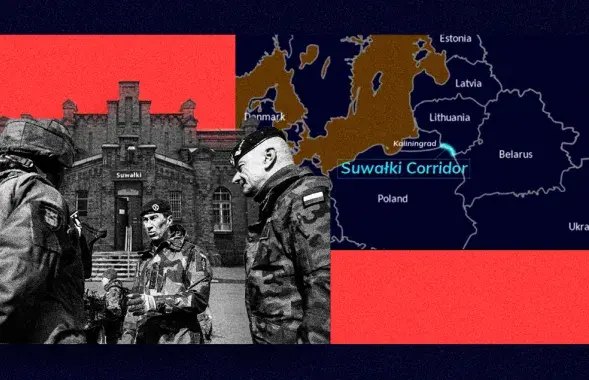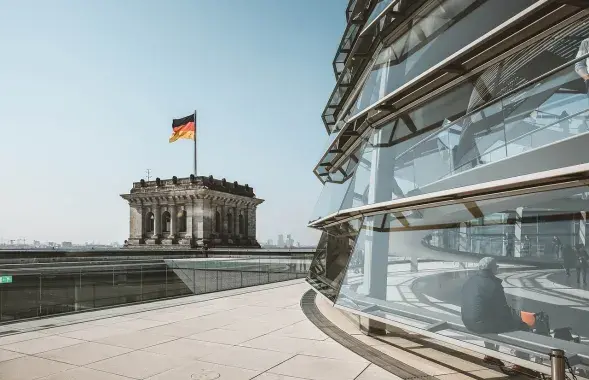Electoral laws. What changes can be accepted by Belarus authorities?
Apart from the other conditions, EU wants Belarus to reform its electoral laws. The European Radio for Belarus exlores what amendments could be expected. According to Mikalai Lazavik, the secretary of the Central Elections Commission of Belarus, a group that will deal with amending the electoral laws, has already been set up and has been even working on the new legislation.
Mikalai Lazavik: “I know that this group which comprises the representatives of the OSCE's ODIHR and the National Center for Legislation, is working. The center is a body in Belarus which drafts legislations. As soon as this document is tabled and studied by the parliament, we will correspondingly change the electoral technology. At the moment, i don't have such a document”.
The list of EU's requirements includes a guaranteed membership of opposition representatives in electoral commissions at all the levels and their ability to monitor the vote-counting process.
However, it will be alsmost impossble to write these provisions in the Electoral Code, because these small details are not mentioned in the laws of the European countries.
Aleg Hulak, the chairman of the Belarusian Helsinki Committee, reckons one should be guided by the traditions that were shaped in the country. Since European allow the opposition to be members of election commission and allow independent observers to monitor the vote-count, there is no need to mention it in the law. Unfortunately, the situation is different in Belarus.
Hulak: “One needs to understand that laws are written in accordance with a tradition that was shaped in the country. If some things are commonly understood and customary, they could not be legally regulated. But, in our country, this definitely should be mentioned in the laws. Since these issues grab a lot of attention and there are ambiguous interpretations, everything should be written precisely and clearly”.
The hope remains that the refusal to amend the Electoral Code can be perceived by Europe as non-willingness to reach a deal.
However, it will not be possible to detalize every step in the law. One will have to rely on the honesty of legal practice in Belarus.
It is worth noting that a commission at the House of Representatives that can theoretically deal with the changes in the electoral laws has no information about this issue. MP Valery Sobaleu, the chairman of the nation-building and local government, knows nothing about the group
Valery Sobaleu: “Unfortunately, you know more than me”.
But, Ludmila Parfionava, a deputy director of the National Center for Legislation and Legal Studies, confirmed the European Radio for Belarus, that she is a member of the group that is developing new electiral laws. Yet, it is early to talk about any concrete amendments, said she.
Only after the document has been drafted, it will be possible to say how it will affect the operation of the Central Elections Commission.
Photo: bymedia.net
Mikalai Lazavik: “I know that this group which comprises the representatives of the OSCE's ODIHR and the National Center for Legislation, is working. The center is a body in Belarus which drafts legislations. As soon as this document is tabled and studied by the parliament, we will correspondingly change the electoral technology. At the moment, i don't have such a document”.
The list of EU's requirements includes a guaranteed membership of opposition representatives in electoral commissions at all the levels and their ability to monitor the vote-counting process.
However, it will be alsmost impossble to write these provisions in the Electoral Code, because these small details are not mentioned in the laws of the European countries.
Aleg Hulak, the chairman of the Belarusian Helsinki Committee, reckons one should be guided by the traditions that were shaped in the country. Since European allow the opposition to be members of election commission and allow independent observers to monitor the vote-count, there is no need to mention it in the law. Unfortunately, the situation is different in Belarus.
Hulak: “One needs to understand that laws are written in accordance with a tradition that was shaped in the country. If some things are commonly understood and customary, they could not be legally regulated. But, in our country, this definitely should be mentioned in the laws. Since these issues grab a lot of attention and there are ambiguous interpretations, everything should be written precisely and clearly”.
The hope remains that the refusal to amend the Electoral Code can be perceived by Europe as non-willingness to reach a deal.
However, it will not be possible to detalize every step in the law. One will have to rely on the honesty of legal practice in Belarus.
It is worth noting that a commission at the House of Representatives that can theoretically deal with the changes in the electoral laws has no information about this issue. MP Valery Sobaleu, the chairman of the nation-building and local government, knows nothing about the group
Valery Sobaleu: “Unfortunately, you know more than me”.
But, Ludmila Parfionava, a deputy director of the National Center for Legislation and Legal Studies, confirmed the European Radio for Belarus, that she is a member of the group that is developing new electiral laws. Yet, it is early to talk about any concrete amendments, said she.
Only after the document has been drafted, it will be possible to say how it will affect the operation of the Central Elections Commission.
Photo: bymedia.net



















